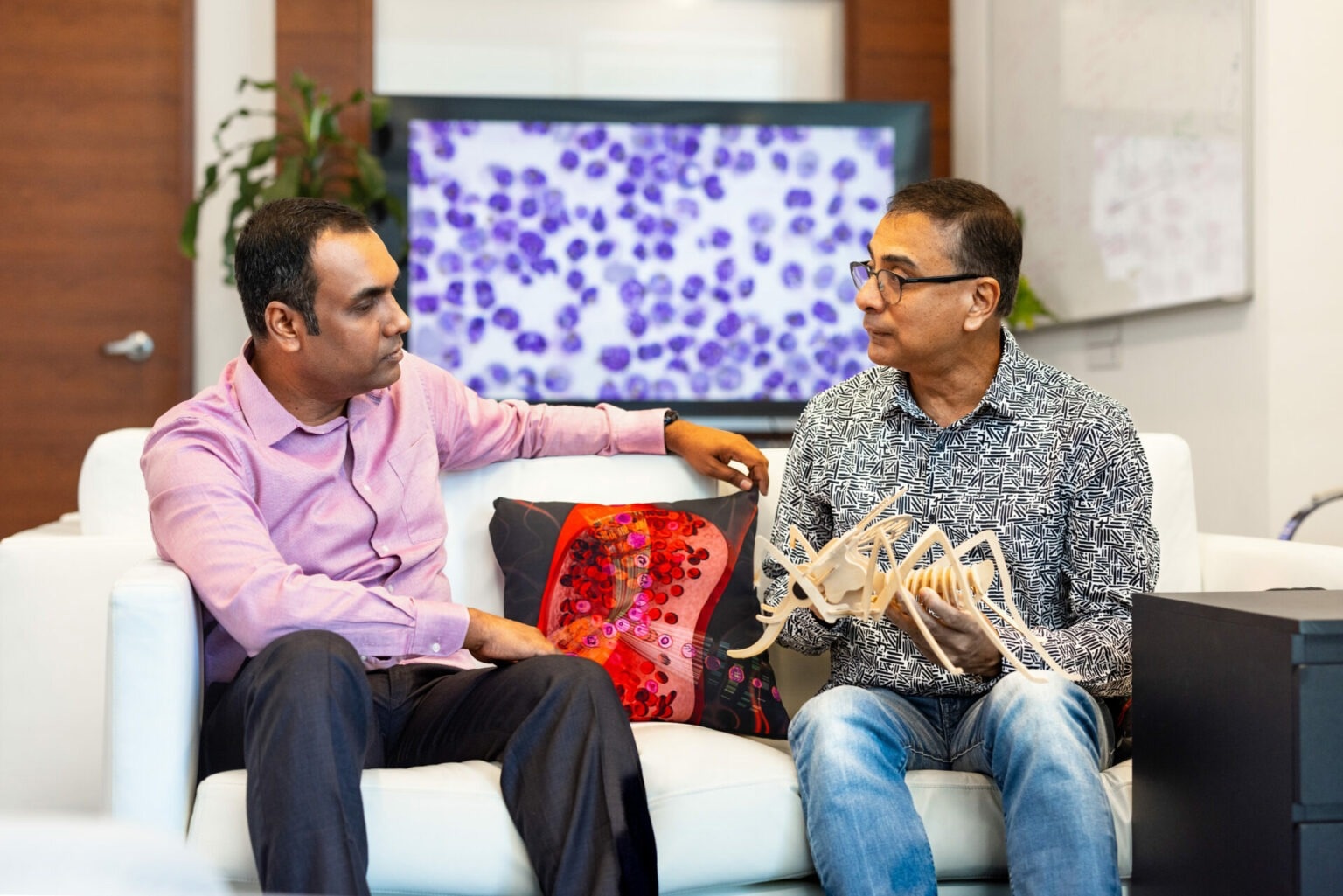The discovery of a malaria protein that helps the parasite grow inside red blood cells and plays a key regulatory role in the parasite's immune evasion tactics could pave the way for new vaccines or therapeutics to combat the deadly infection.
 The discovery of a recent malaria protein by Amit Kumar Subudhi (left) and Professor Arnab Pain (right) could lead to the development of vaccine-like “immune triggers“ for warding off natural malaria infections in people. © 2023 KAUST; Anastasia Serin.
The discovery of a recent malaria protein by Amit Kumar Subudhi (left) and Professor Arnab Pain (right) could lead to the development of vaccine-like “immune triggers“ for warding off natural malaria infections in people. © 2023 KAUST; Anastasia Serin.
The protein, known as PfAP2-P, was previously identified in a KAUST-led study that explored malarial genes and proteins displaying rhythmic 24-hour expression patterns - an adaptation that allows the parasite to synchronize its activities with those of the host during the human blood stage of its developmental cycle.
The expression levels of PfAP2-P seem to peak first around 16 hours after the invasion of red blood cells and then again some 24 hours after that. These peaks coincide with the activation of genes linked to two crucial biological processes. The first is when malaria parasites coat the red cells they infect with various combinations of sticky proteins to elude immune recognition and the second when groups of young parasites prepare to exit one red blood cell and invade other uninfected red cells.
This observation intrigued Amit Kumar Subudhi, a research scientist in Arnab Pain's group. Together with Pain and collaborators from various other KAUST labs, he wanted to reveal PfAP2-P's function.
Through a series of molecular experiments, they showed that PfAP2-P indeed serves as an essential regulator of multiple key biological processes of the parasites. The protein acts as both a repressor of genes involved in immune evasion and as a brake on genes associated with the parasite's transition to its sexual stage of development.
The researchers also identified several novel proteins that are directly or indirectly regulated by PfAP2-P, a few of which could be targeted for future drug development. Moreover, they discovered that PfAP2-P acts as an activator of the proteins required for the parasite to exit infected red blood cells and invade new ones.
Perhaps the most promising discovery came from studies on mutant malaria parasites that lacked a working version of PfAP2-P. These parasites could not control the coordinated expression of highly variable sticky proteins at the surface of the red cells involved in skirting immune detection.
Red cells infected with these PfAP2-P–defective parasites expressed the full array of sticky surface proteins, rather than employing the usual tactic of "hide and seek" with the host immune recognition system. As a result, the PfAP2-P-defective parasites were readily recognized by malaria-destroying antibodies that, in principle, could help train the body to fend off naturally occurring malaria infections.
The KAUST researchers are currently exploring the potential of these mutant parasites as vaccine-like "immune triggers" for warding off natural malaria infections in people.
Source:
Journal reference:
Subudhi, A. K., et al. (2023). DNA-binding protein PfAP2-P regulates parasite pathogenesis during malaria parasite blood stages. Nature Microbiology. doi.org/10.1038/s41564-023-01497-6.